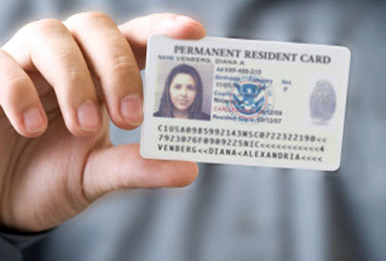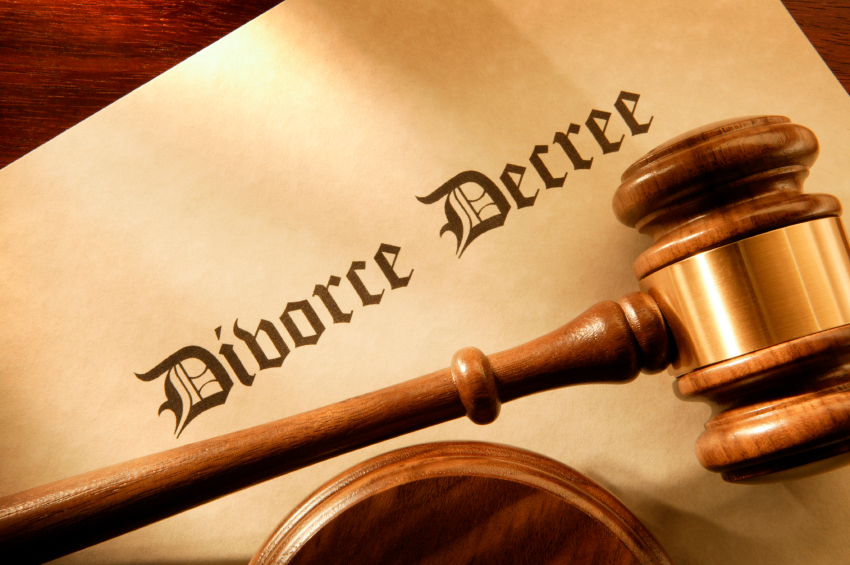Personal Services
Application for a Green Card

A green card offers permanent residence and gives you the benefits of living, working, and studying in the U.S. Your green card is basically good for life if you keep up renewal and eligibility requirements. Family-based green cards are one of the most common ways to obtain lawful permanent resident status in the U.S. You can apply for a family-based green card through a spousal, sibling, child, or parent relationship. A petition must be filed on your behalf by a family member who is a U.S. citizen or lawful permanent resident. Your family member must provide proof of the relationship that you hold and prove that they can support you at 125% above the mandated poverty line.
Application for a Visa

A visa is a temporary permit that allows you to travel to the United States as far as the port of entry (airport or land border crossing) and ask the immigration officer to allow you to enter the country. Only the immigration officer has the authority to permit you to enter the United States. He or she decides how long you can stay for any particular visit. Visits are usually for reasons of employment, but may also extend to travel and leisure.
Application for Citizenship

Citizenship is the status given to a legal member of the country. It involves rights, duties and privileges. Naturalization is the process by which a citizen of a foreign country becomes a United States citizen. People want to become citizens for a number of reasons. US citizens have the right to vote in elections, help family members immigrate, work in certain state and government jobs, and lastly they cannot be deported.
Divorce

A divorce ends a marriage and all direct legal relationships between the couple, except those specifically written out in the divorce decree or judgement. Such issues as spousal support, parenting arrangements, support of children, division of property and payment of debts may be addressed as well. When both parties agree on these issues, the divorce is “uncontested.”
Guardianship of a Minor

Guardianship of a minor child is a court process by which a person other than a parent is given custody of a child or authority over a child’s property. Relatives, friends of the family or other interested persons may be considered as potential legal guardians. Appointment as guardian requires the filing of a petition and approval by the court. Sometimes a child needs a guardian because the child’s parents have died. A child may also need a guardian if the child is not receiving adequate care or is being abused.
Legal Separation

Unlike a divorce, a legal separation does not end a marriage. You can’t marry someone else if you are legally separated (and not divorced). A legal separation is for couples that do not want to get divorced but want to live apart and establish an agreement on financial responsibilities, property distribution, and parenting issues. Couples sometimes prefer separation for religious reasons.
Living Will

A living will allows you to convey your wishes regarding medical treatment when those wishes can no longer be personally communicated. It is a written document that states a your desires regarding life-support or other medical treatment being withheld or withdrawn in certain circumstances, usually when death is imminent, or a state of coma or vegetation becomes permanent. It is either a separate document or part of a health care power of attorney, depending on the state in which you live.
Name Change

Common reasons are divorce, dissatisfaction with your current name or the desire to change your child or family’s last name.
Generally, a petition will be filed with the court citing your reason for wanting a name change to initiate the process. Depending on the court you file in, there might be a hearing that you may be required to attend and publication of the name change notice might be required in a newspaper of general circulation in the county in which you reside. If your petition is approved, you will receive an order of name change
Order to Show Cause

An order to show cause (OSC) is a way to require both parties to appear in court to obtain a court order. An order may make someone do something, such as pay child support. Or it may stop someone from doing something, like harassing another person. Also, an order may simply set a date for something to happen, like the beginning of a trial. You must give the person you are suing (or who is suing you) a chance to respond. That is, you must give him or her “notice” in writing of your order to show cause.
Power of Attorney

When an individual prepares and signs a financial power of attorney, they are appointing someone they trust to handle certain legal transactions on their behalf, including all financial transactions such as managing investments, paying bills, buying or selling property and making financial decisions. When preparing your financial power of attorney, you can also limit the types of transactions that it pertains to. For example, you can limit it solely to real estate or banking or insurance. In other words, you don’t have to cover all financial transactions, only those you wish to be included.
Probate

Probate is the process of moving the estate of a deceased person through the legal system so that beneficiaries receive property or other assets that belonged to the deceased. This legal action will happen whether or not there is an existing will, although it is infinitely easier and faster if one has been created. If no will exists, the state determines how the assets are distributed.
Promissory Note

A promissory note is a written document in which a borrower agrees (promises) to pay back money to a lender according to specified terms. It typically includes the amount of the loan and the terms and timing of payback.
Response to a Divorce

To get a divorce, one person has to file a petition (or complaint) with the court. The other person may file a response (or answer) to the initial filing and become an active participant in the divorce process. If you choose to file a response you will have the opportunity to provide your reaction to the petition by answering some simple questions.
Small Claims

Small claims court is for regular people who want to take certain legal matters into their own hands. A small claims action allows an individual or business to be compensated by a party who has not performed according to an agreement or who had committed some wrongdoing. Typically, one brings a dispute before the small claims court that may not be significant enough to retain an attorney or to bear the expense of a full-fledged court case.
Wills and Living Trusts

A living trust is similar to a will in that it lets you control who gets your property when you die. The primary benefit of a living trust is that it can help your beneficiaries avoid the expense and delay of probate of the assets transferred to the living trust before your death. Probate is the court-directed process of distributing a person’s assets and possessions after death. The probate court governs the distribution of your estate according to the instructions of your will if you left one, or if you did not, according to your state’s laws of intestate succession. At death, most property must pass through probate before it can be inherited. However, property transferred to a living trust prior to death does not. This is why most people prepare a living trust – to avoid probate.




